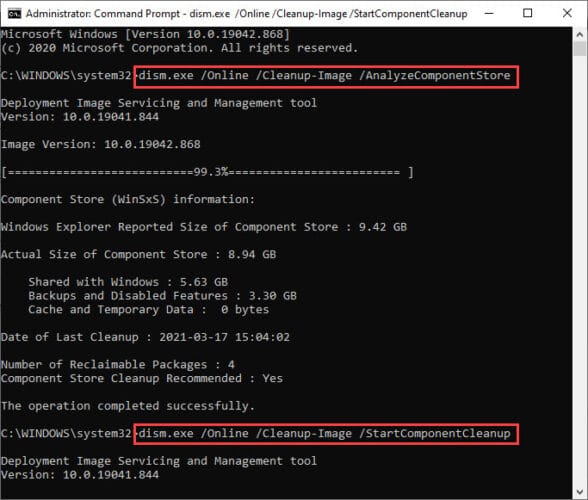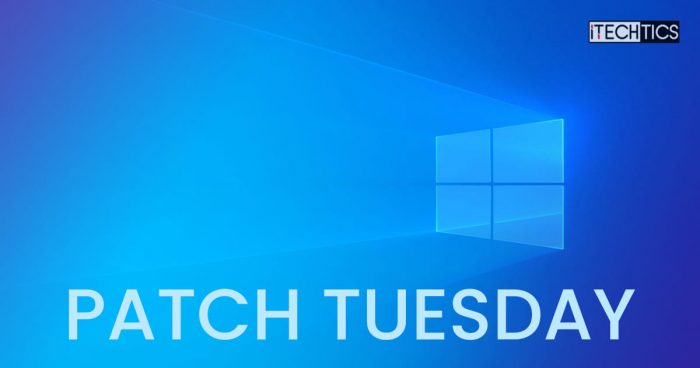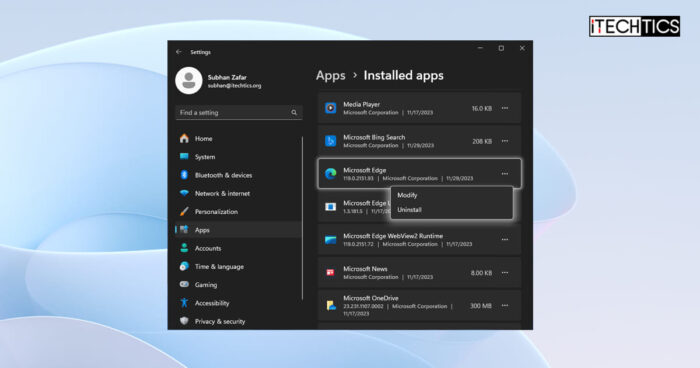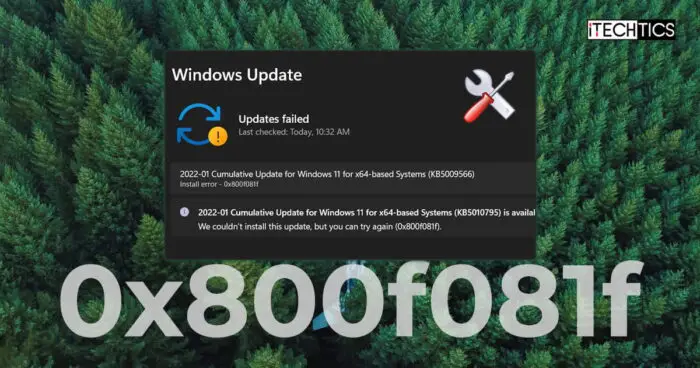The second Tuesday for the month of February 2022 has passed, and we all know it means Patch Tuesday for Microsoft Windows products.
Microsoft has released KB5010342 for Windows 10 versions 21H2, 21H1, and 20H2. Since Windows 10 versions 2004 through 21H2 share the same core, the same update can be applied to all of them. However, version 2004 had reached the end of service on December 14, 2021, therefore the update is not available for the said Windows version.
This update does not bring any new features to the operating system. However, it does fix a number of security vulnerabilities, including one zero-day vulnerability. The details about the security fixes can be found in this post by Microsoft.
The table below indicates your updated OS build number after installing KB5010342:
| Windows 10 version | Updated OS Build |
| 21H2 | 19044.1526 |
| 21H1 | 19043.1526 |
| 20H2 | 19042.1526 |
You can check your Windows 10 version and build number by typing in winver in Run.
Let’s continue to see what this update has to offer and whether it has any significant issues, and then proceed to how you can install it.
Fixes and Improvements
This update includes quality improvements for the Servicing Stack (SSU), which is responsible for installing the Windows updates. These improvements ensure that the user has a smooth experience while installing these updates. Installing this update will upgrade the SSU’s build to 1904x.1525.
Furthermore, an issue with Lightweight Directory Access Protocol (LDAP) which causes it to fail if the operating contains SamAccountName and UserAccountControl attributes, has been fixed. Users usually encountered this error with the following statement:
Error: 0x20EF. The directory service encountered an unknown failure
With these improvements, there are several issues with the release as well.
Known Issues
An issue with the standalone (clean) installation of Windows 10 with this update is causing Microsoft Edge Legacy to be removed. However, it is not being replaced by the new Chromium-based Edge. This occurs only when Windows has a custom offline media or an ISO image installed that does not include the 29th March 2021 SSU update.
Microsoft suggests that you either install the March SSU update through slipstreaming or simply update an existing OS through Windows Update, so you will not be facing this issue. Alternatively, you can simply download and install the new Microsoft Edge if you have already encountered this problem.
Another issue that users might face with this update is that they are unable to install it entirely. This may be because of a previously installed update KB5003690. If that is the case, you can find a workaround for it here in Microsoft’s post.
Users may also see an error message “Your credentials did not work. The credentials that were used to connect to (device name) did not work. Please enter new credentials” when connecting to devices in an untrusted domain using Remote Desktop while using smart card authentication. Microsoft has found a temporary fix around the issue which you can find here.
These issues have been around for Windows 10 for quite some time now. However, Microsoft has not been successful at fixing them as of yet.
Download and Install Windows 10 KB5010342
This update can be installed through Windows Update, Windows Update for Business, Standalone installers, and Windows Server Update Services (WSUS).
We have given the direct download links to the standalone installers below, using which you can install the update on your respective Windows 10 version, or you can simply update to the latest build using Windows Update through the given guide below.
Offline Installers
For Windows 10 Version 21H2
Download KB5010342 for Windows 10 Version 21H2 64-Bit [656.6 MB]
Download KB5010342 for Windows 10 Version 21H2 32-Bit [307.8 MB]
For Windows 10 Version 21H1
Download KB5010342 for Windows 10 Version 21H1 64-Bit [656.6 MB]
Download KB5010342 for Windows 10 Version 21H1 32-Bit [307.8 MB]
For Windows 10 Version 20H2
Download KB5010342 for Windows 10 Version 20H2 64-Bit [656.6 MB]
Download KB5010342 for Windows 10 Version 20H2 32-Bit [307.8 MB]
To install the update, simply run the downloaded MSU file and Windows will automatically install the update. To download any other updates related to any of the above, please check the Microsoft Catalog.
Windows Update
To install this update via Windows Update, you need to be running Windows 10 version 21H2, 21H1, or 20H2. To check your version of the operating system, type in winver in Run and press Enter.
Once ensured you have the right OS version, perform the following steps to install KB5010342:
- Navigate to the following:
Settings app >> Update and Security - Here, click Check for updates from the right side of the app.

- The app will now scan for any available updates. When the scan finishes, you will see the following update being downloaded automatically:
2022-02 Cumulative Update for Windows 10 Version 2XXX for x64-based Systems (KB5010342)
Once installed, click Restart now to finalize the installation.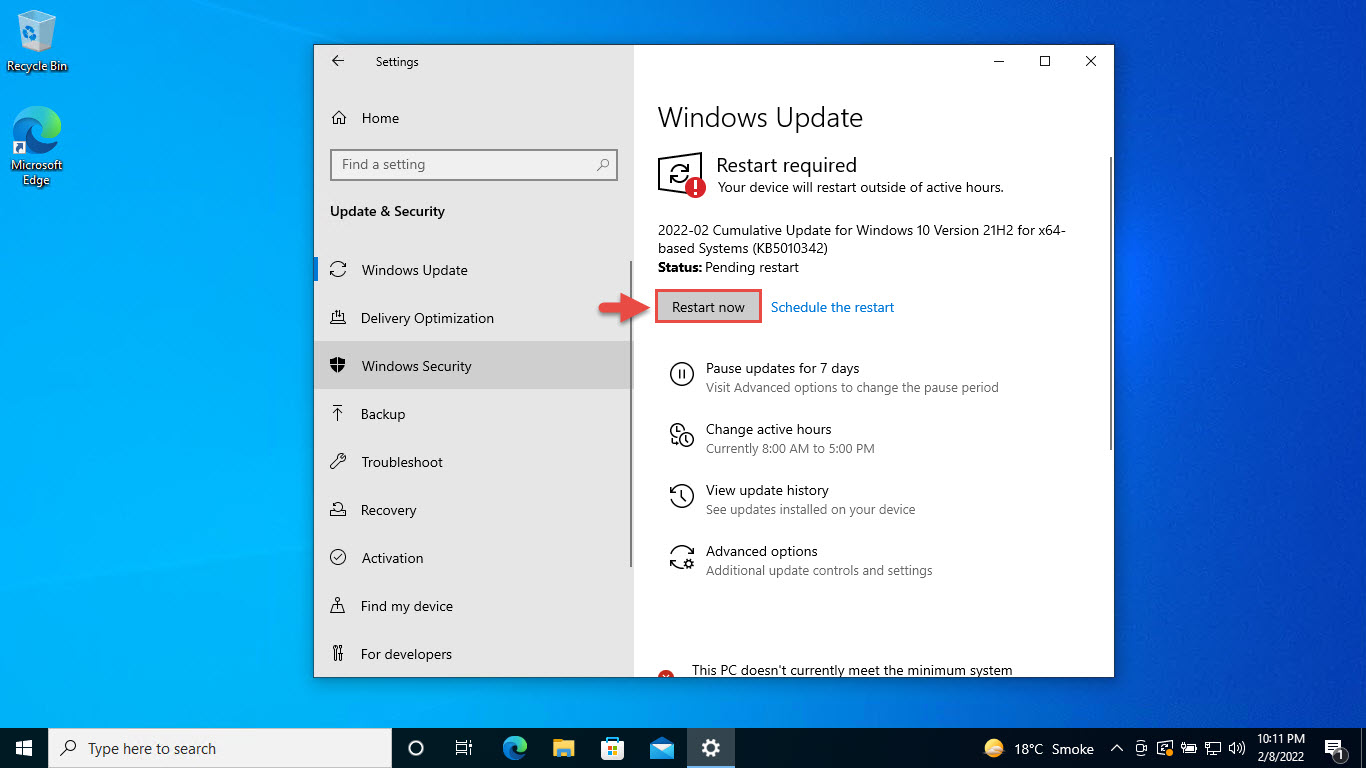
Once the PC boots up again, you can then confirm that the update has been installed successfully through winver.
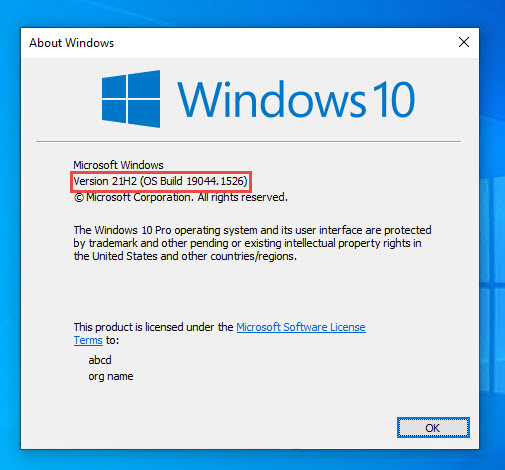
Rollback/Remove Windows 10 Cumulative Update
If you do not wish to keep the installed update for some reason, you can always roll back to the previous build of the OS. However, this can only be performed within the next 10 days after installing the new update.
To roll back after 10 days, you will need to apply this trick.
Cleanup After Installing Windows Updates
If you want to save space after installing Windows updates, you can run the following commands one after the other in Command Prompt with administrative privileges:
dism.exe /Online /Cleanup-Image /AnalyzeComponentStore
dism.exe /Online /Cleanup-Image /StartComponentCleanup
